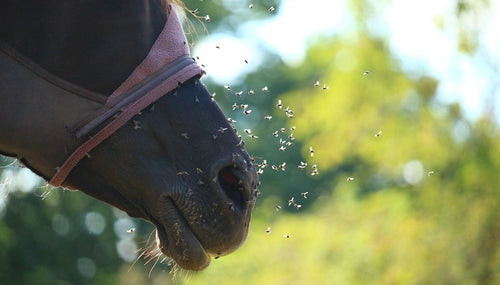Effective fly care is indispensable for ensuring the happiness and health of horses. Flies not only cause discomfort and stress to horses but can also lead to more severe issues such as skin infections and disease transmission. Essential fly control strategies include regular use of fly repellents, maintaining a clean environment by managing manure and disposing of garbage properly, and using physical barriers such as fly masks or sheets.
These measures significantly reduce fly exposure, thereby enhancing equine comfort and well-being. A horse that is not constantly harassed by flies is calmer, more cooperative, and better able to perform whether in training or competitions, enhancing the bond between horse and owner. Thus, diligent fly care is a key component of responsible horse management, contributing directly to the physical and emotional health of the horse.
Flies are vectors for numerous diseases. They can transmit infections such as equine infectious anemia (swamp fever), which is a serious viral disease affecting horses' immune systems. Flies can also spread bacteria leading to skin infections and eye diseases like conjunctivitis, commonly known as pink eye. The presence of flies often exacerbates skin conditions by causing horses to scratch and bite themselves, leading to sores and wounds that are vulnerable to further infection.

Strategies To Help You :
Chemical Repellents: Regular application of fly sprays or spot-on treatments can help keep flies away from your horses. It's important to choose products that are effective yet safe for equine skin.
Physical Barriers: Using fly masks, sheets, and leg wraps can physically block flies from irritating your horse. These barriers are particularly useful during peak fly seasons.
Environmental Management: Keeping the stable and surrounding areas clean is crucial in fly management. This includes regular removal of manure, ensuring that trash and feed are securely stored, and eliminating standing water where flies breed.



